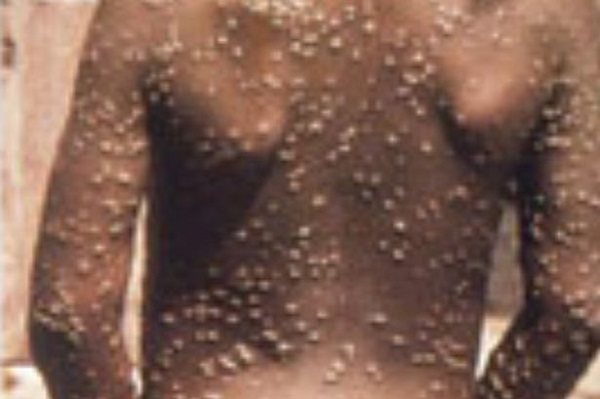
The Africa Centres for Disease Control and Prevention (Africa CDC) has reported that Mpox remains a serious public health issue, with 489 new cases and 53 deaths confirmed in the past week.
Director-general of Africa CDC, Dr. Jean Kaseya disclosed this during a weekly briefing on disease outbreaks across the continent.
Science Nigeria reports that the World Health Organisation (WHO) declared Mpox a global public health emergency in August for the second time in two years, following the spread of a new variant from the Democratic Republic of the Congo (DRC) to neighbouring countries.
According to Kaseya, Mpox remains a significant public health challenge in Africa.
“A total of 3,186 new cases were reported in the past week, with 489 confirmed and 53 deaths. While we don’t see a reduction in deaths, there is an increase in cases compared to previous weeks,” Kaseya said.
He emphasised the need for urgent interventions, including vaccination, to curb the spread of the virus.
“In 2024, over 38,300 cases have been recorded across 16 African countries, with 979 deaths. Ghana and Zambia are the latest countries to report Mpox outbreaks,” Kaseya added.
He also highlighted a vaccination campaign in the DRC, where more than 1,600 people have been vaccinated, primarily in the eastern region.
In addition, Nigeria recently received 10,000 doses of the Mpox vaccine from the US and is set to begin vaccination. Africa is expecting 10 million doses from international partners.
“Mpox typically presents with flu-like symptoms and pus-filled lesions,” he noted.
Kaseya also addressed the Marburg virus outbreak in Rwanda, reassuring that the risk of the country exporting the disease was very low.
“What I observed in Rwanda indicates an almost zero risk of spreading the disease beyond its borders. I say ‘almost’ because we can never be 100 percent sure, but I can confidently say the risk is 95 per cent minimised due to the measures in place,” he said.
He reported 58 confirmed cases of the Marburg virus in Rwanda, with 13 deaths, leading to a case fatality rate of 22 per cent.
Kaseya praised Rwanda’s preventive measures, highlighting strong coordination between police, health facilities, and transport officials in tracking contacts and providing medical interventions.
“They can locate an ambulance anywhere in the country, not just in Kigali. They are also monitoring contacts daily, preventing them from traveling outside the country,” he said.
Kaseya criticised the US for issuing a travel advisory against Rwanda due to the Marburg outbreak, calling it “unfair and unacceptable.” The US Centres for Disease Control and Prevention (US-CDC) recently raised its travel advisory for Rwanda to level three, urging people to reconsider nonessential travel.
He defended Rwanda’s response, noting that the country has deployed vaccines, treatment and testing to control the spread of the virus.
“Rwanda recently received 700 doses of an experimental vaccine from the US-based Sabin Vaccine Institute, intended for health workers and those who had contact with confirmed cases,” he said.
Marburg virus disease is a severe illness with an average fatality rate of around 50 per cent. There are currently no approved vaccines or antiviral treatments, but supportive care can improve survival rates. Various vaccines and treatments are under development.

